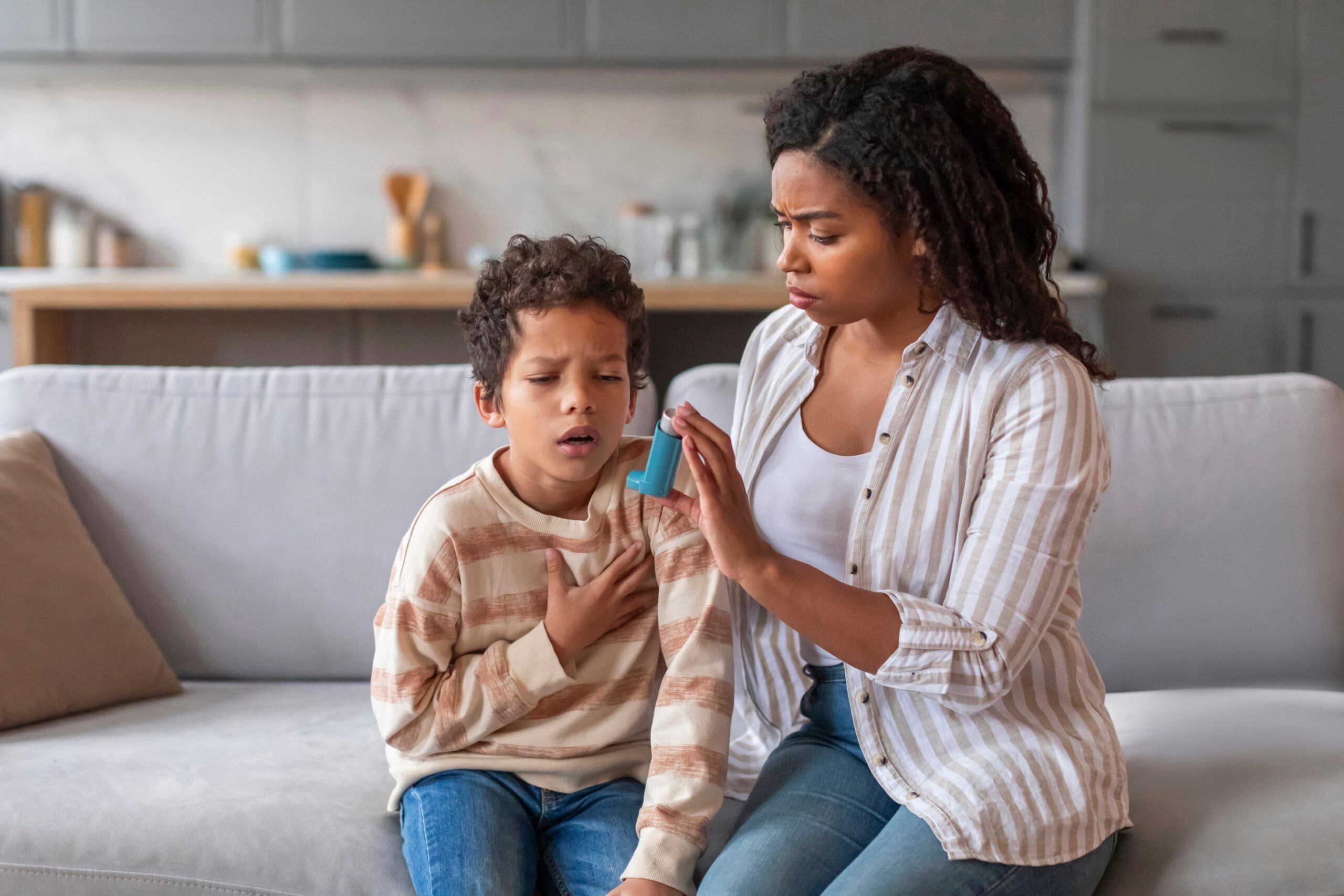Asthma Risk Factors in Children: Signs, Causes, and When to See a Doctor
What Is Asthma?
Asthma is one of the most common chronic conditions in children — and for many families, it can be a source of worry and confusion. Understanding asthma risk factors in children and recognizing early symptoms can help you take proactive steps to support your child’s respiratory health.

Asthma is a chronic condition that causes the airways in the lungs to become inflamed and narrowed, making breathing difficult. Symptoms can include:
- Coughing
- Wheezing
- Shortness of breath
- Chest tightness
These symptoms often appear during physical activity, at night, or after respiratory infections. According to the Centers for Disease Control and Prevention (CDC), nearly 1 in 12 children in the U.S. currently have asthma, making it a widespread concern for parents and caregivers.
Common Asthma Risk Factors in Children
While there isn’t one definitive cause of asthma, several well-known asthma risk factors in children increase the likelihood of developing this condition:
Family History of Asthma or Allergies
Children with a parent or sibling who has asthma, eczema, or seasonal allergies face a higher risk.
Eczema (Atopic Dermatitis)
Infants or toddlers with eczema are more likely to develop asthma later in life — part of what’s known as the “atopic march.”
Frequent Respiratory Infections
Children who have recurrent colds or bronchiolitis, especially in early childhood, may be at greater risk for developing asthma.
Environmental Allergies
Exposure to common allergens like dust mites, mold, pollen, or pet dander can trigger asthma symptoms.
Secondhand Smoke Exposure
Prenatal or childhood exposure to cigarette smoke is a major contributor to asthma development and severity. The American Lung Association highlights that environmental triggers and secondhand smoke are among the top preventable risk factors that influence asthma severity in kids.
When Should You Consult Your Child’s Primary Care Doctor?
Talk to your doctor if your child exhibits:
- Frequent night-time coughing or after active play
- Wheezing, even if only during colds
- Regular “chest colds” or need for an inhaler
- Shortness of breath during activity
- A history of eczema or allergies
- A strong family history of asthma or allergies

Your pediatrician may recommend testing, observation, or early medication options to manage asthma symptoms effectively.
How You Can Support Your Child
Asthma doesn’t have to limit your child’s life. With early identification and a customized care plan, most children with asthma can participate fully in sports, school, and play. For more guidance, explore our latest resources or schedule a visit with your pediatrician today.



